Moments that made Britain's black stars
- Published
From love and inspiration to shocking racial abuse, some of Britain's best-loved black stars have been sharing moments that both shook them and helped shape their lives. They spoke to photographer Simon Frederick for his documentary series Black is the New Black.
Warning: this story contains offensive language.

Thandie Newton, actress
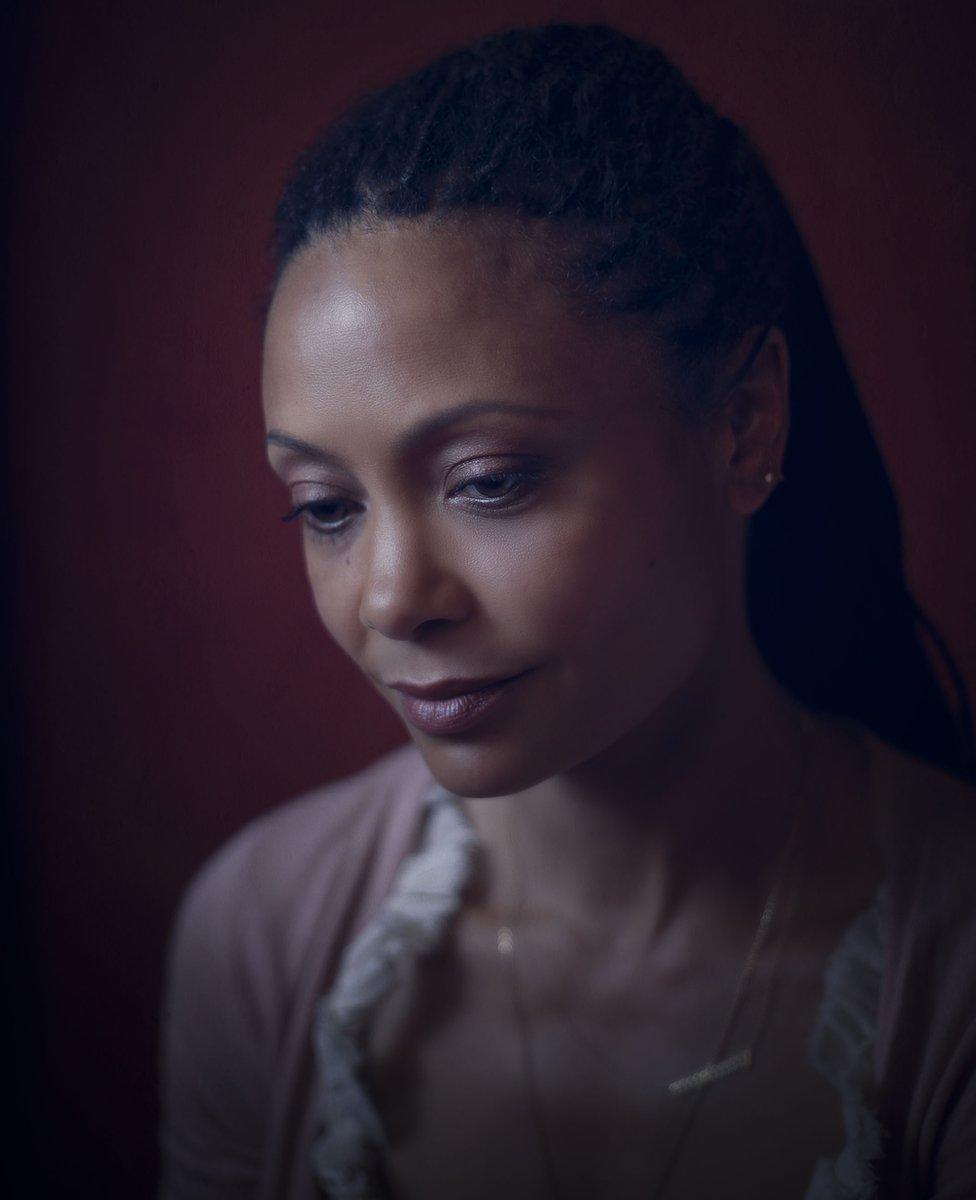
My parents were pioneers but it was not something they chose.
My mother, from Zimbabwe, was working as a midwife in Zambia. My dad, Nick Newton, from Cornwall, wanted to find the roots of the blues and felt it was in Africa. They met and fell in love.
To fall in love with an African woman in the mid-60s and then to bring her back to Cornwall - which is so not African - he was cool.
My dad broke the mould.
My mother - she's a warrior. It wasn't like having stones thrown at the window, it was in the mind, the feeling of needing to look over your shoulder. She responded to that just by keeping things small.

David Harewood, MBE, actor
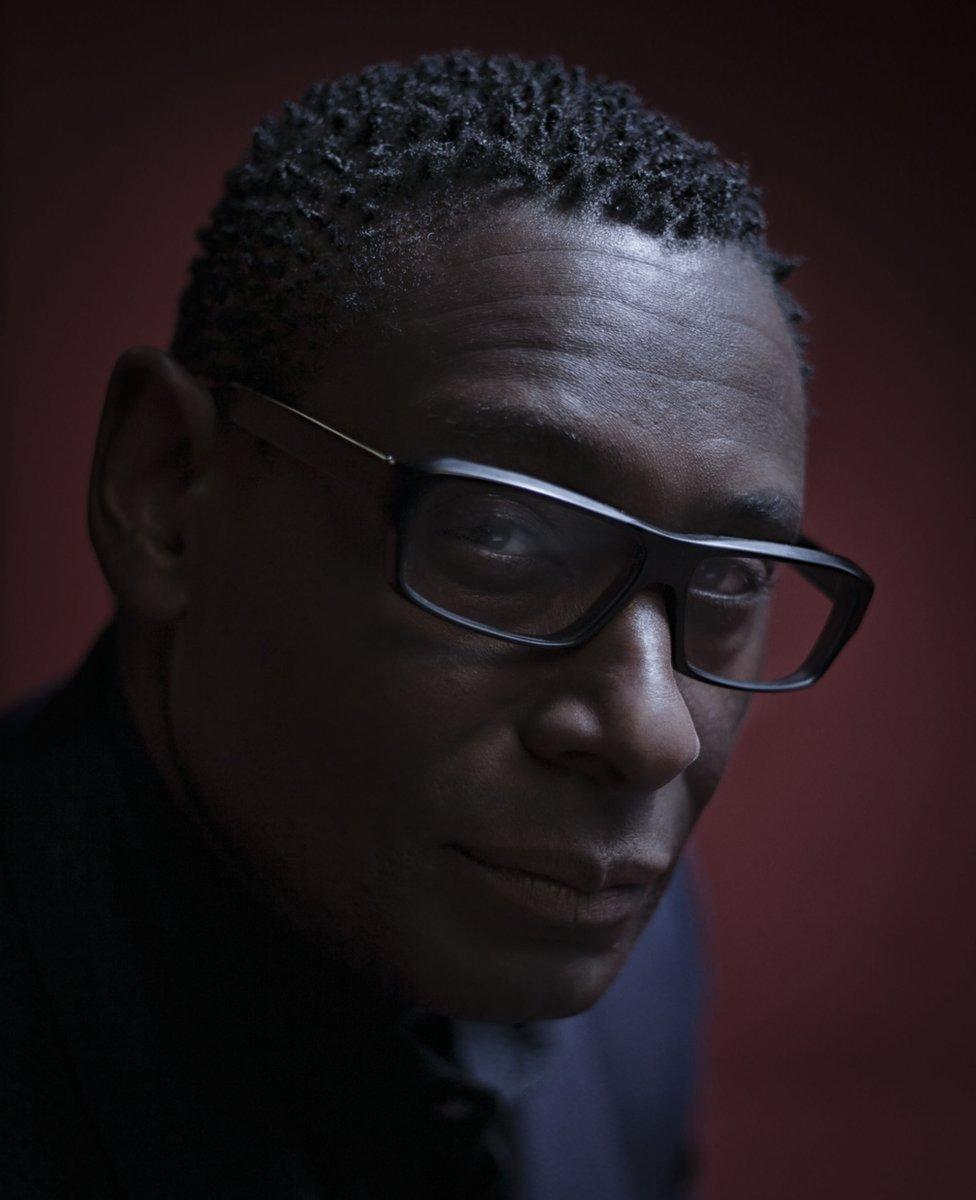
I was always playing sport and what did stand out for me was the West Indian cricket team. My dad and I would sit there for hours watching them on television.
The drums were playing, people were blowing whistles, it was really joyous. It was a celebration of who we were. It felt great to be getting one over and winning because you never really saw that success.
I used to support Leeds United football team because they were brilliant. I was about eight or nine and Leeds were playing Birmingham so I thought I'd go and support them.
I walked into St Andrew's, into the Leeds end, and I heard the "Oo Oo, nigger nigger". I stopped and thought, "Did I just hear that?"
I carried on. I was on my own. And then I heard another one.
I remember my mother saying, "Stand up to bullies and racists," so I said to myself, "Go and take your seat." I walked towards an empty seat, and it got louder, the monkey noises, the nigger, coon, wog... It sounded like 10,000 people calling me a nigger.
I was eight. It shook me to my core.
I stopped, turned around and left and I have never been to a football match on my own since - never.

Naomi Campbell, model
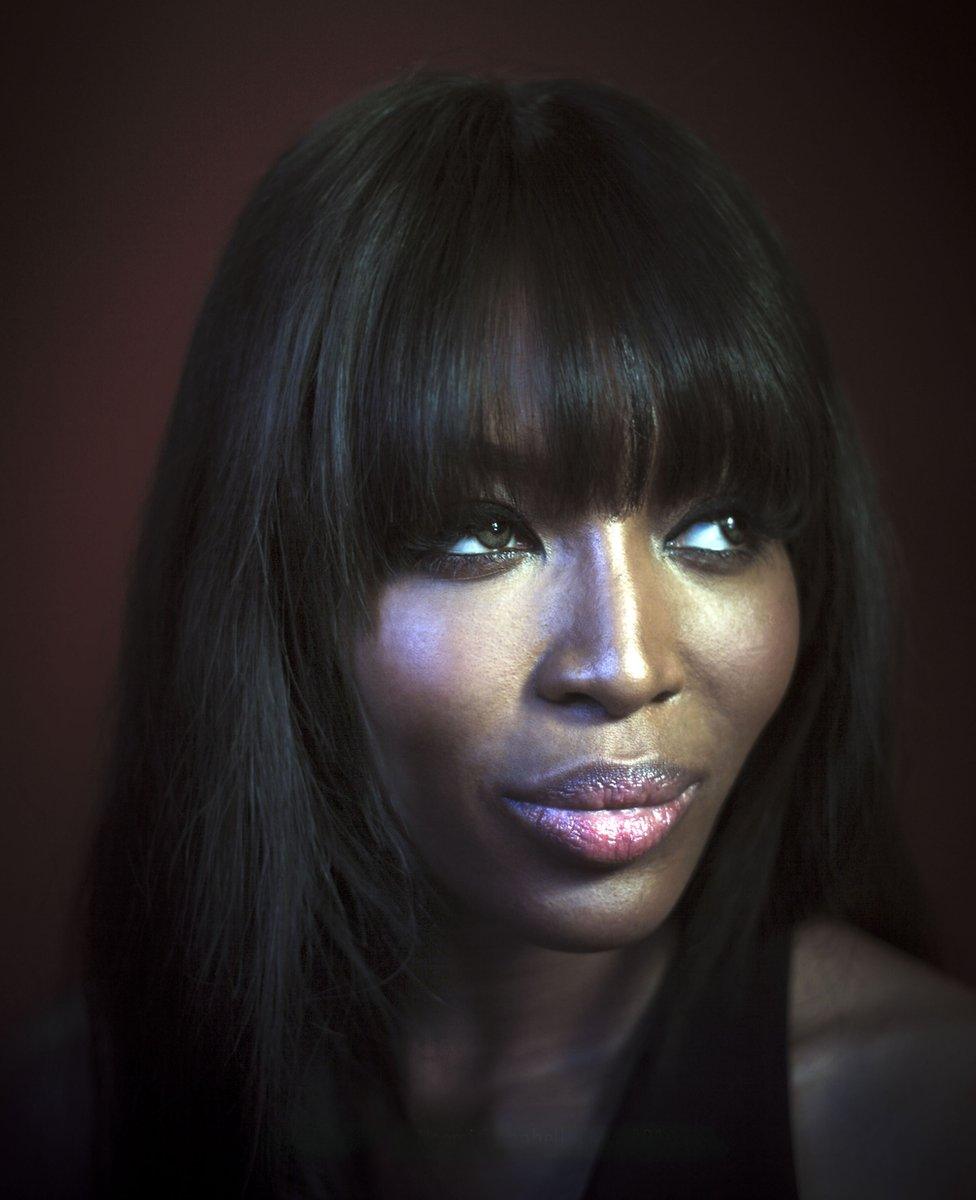
Like every other child I was mischievous. I wanted to dance so my mother sent me to a dance school. Modelling never entered my mind, it was not something I thought about.
When I was first spotted I thought the woman was talking to my girlfriend who had blonde hair and blue eyes. I didn't think she was talking to me - she said, "No, you," and gave me her card.

Sir Trevor McDonald, newsreader and journalist
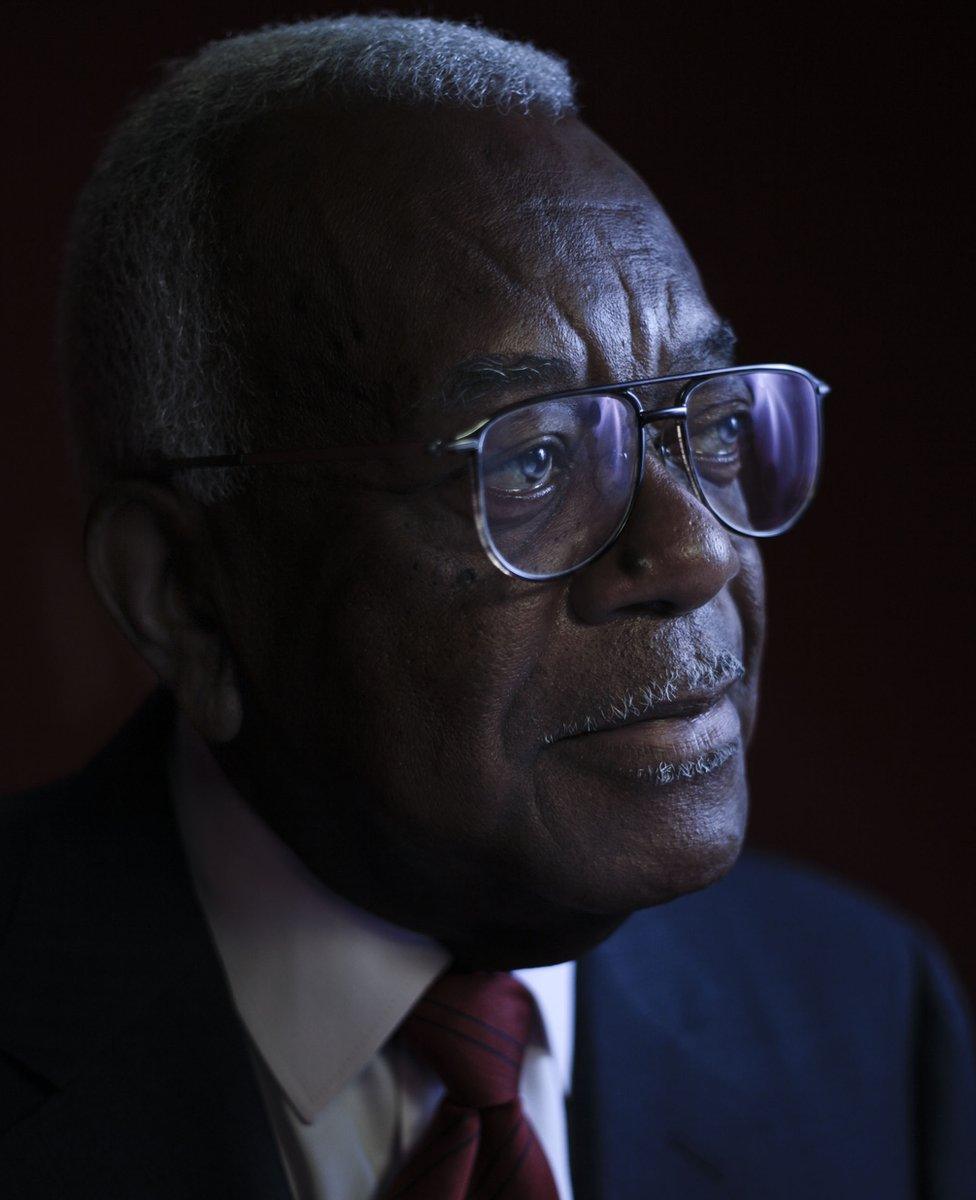
I was born in Trinidad. My parents were not formally educated. My father was an engineer at the oil refinery. We were all pretty poor and there was a natural aspiration to get out of that poverty.
It was an important part of West Indian life, you had to try to make something of yourself. Trinidad would not be your ultimate destination, we were colonies of the British Empire.
Not very long after I joined ITN the editor who employed me called me up to his office and said, "I've been thinking about your career." That was news to me as at that stage I didn't know I had one.
He said, "What I think you should do is anchor the news sometimes." I thought this was the finest job in the world.
I don't think I would have gone to him and made that suggestion, I never had that vision of what I would do. I never thought it would end up this way.

Sir Lenny Henry, comedian and broadcaster
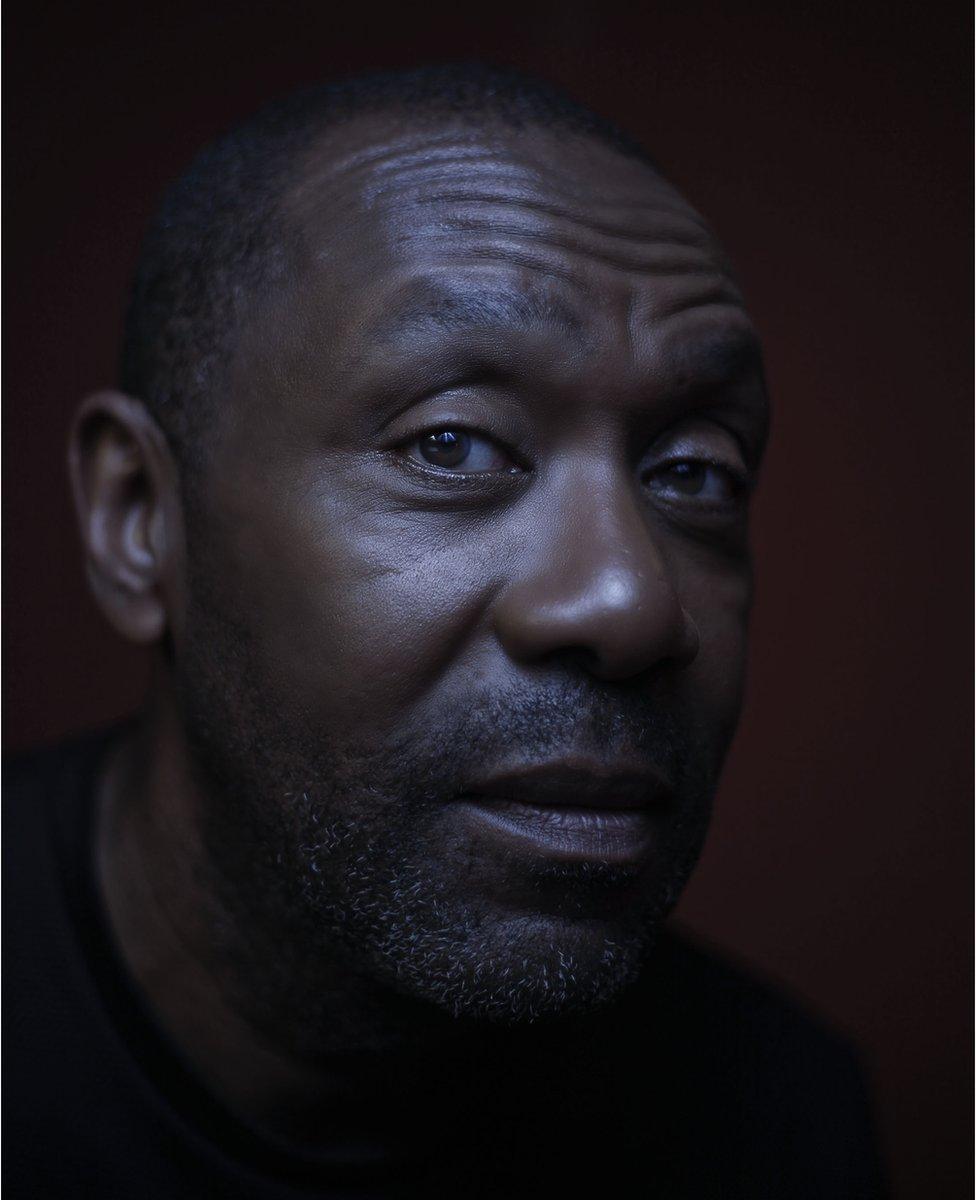
My family are my heroes because they transcended whatever it was that afflicted them, that stood in their way when they came here, and they raised a family. Anybody who has gone through that and put food on the table - those are the real heroes, there is nothing stronger than that, nothing more powerful.
My parents would tell me, "If you want to succeed in this country you have to be twice as good as anybody else to be accepted as an equal."
Well, how are you going to win that?
I did a lot of self depreciatory jokes aimed at myself, aimed at my colour because I had seen a lot of other black comedians do it. I'm not making excuses, I have half a brain, I could have made a decision not to, but I was 16 and in showbiz and going "Hurrah" and not making many decisions that you could go, "That's a good decision my boy." I wasn't making many of those for a very long time, still don't sometimes. But there comes a time when you can own your own identity and say, "This is who I am. Let's do this."

Tinie Tempah, recording artist and producer
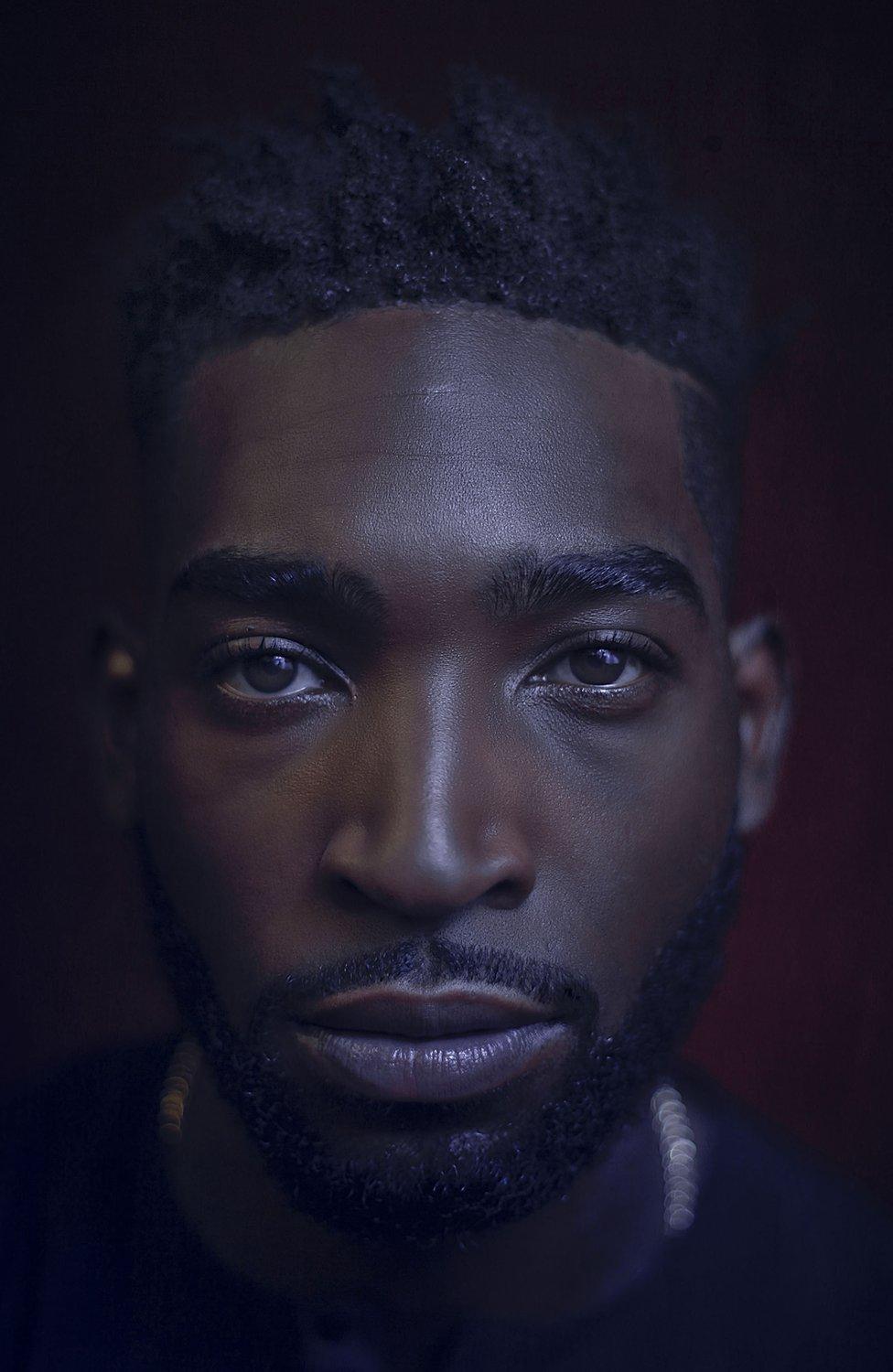
One thing people are not going to realise is that even with someone like myself, when you walk into a room, because of the colour of your skin you are already judged in some way.
What a lot of people in England don't know is that the development of most of these powerful Western nations was by the manpower of black slaves. They have just been wiped out of the story.
So all these buildings, they will tell you about the architect and the guy who had the idea for the building but they won't tell you how it was built. If you put that bit of information in the story, then you have changed the story completely.
All photographs by Simon Frederick

Find out more

In Black is the New Black 40 people from politics, business, culture, religion and science share their experiences of being black and British.
Catch up on the first two episodes online and watch episodes three and four on BBC Two at 22:00 on Sunday 20 and Sunday 27 November.
The programme is part of the Black and British season which celebrates the achievements of black people in the UK, explores the culture and history of black Britain and what it means to be black and British today

Join the conversation - find us on Facebook, external, Instagram, external, Snapchat , externaland Twitter, external.